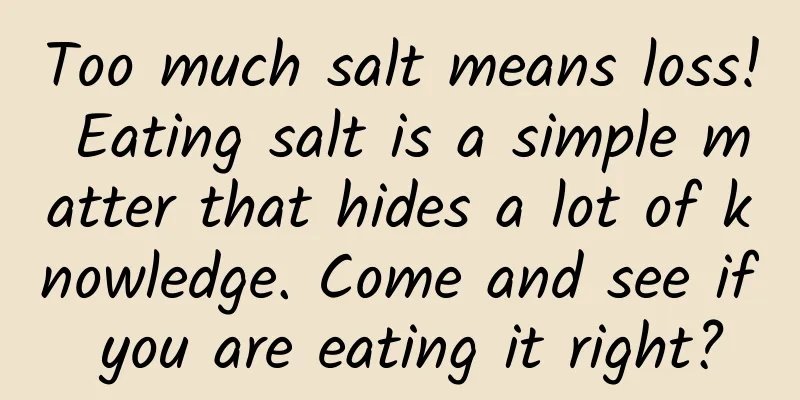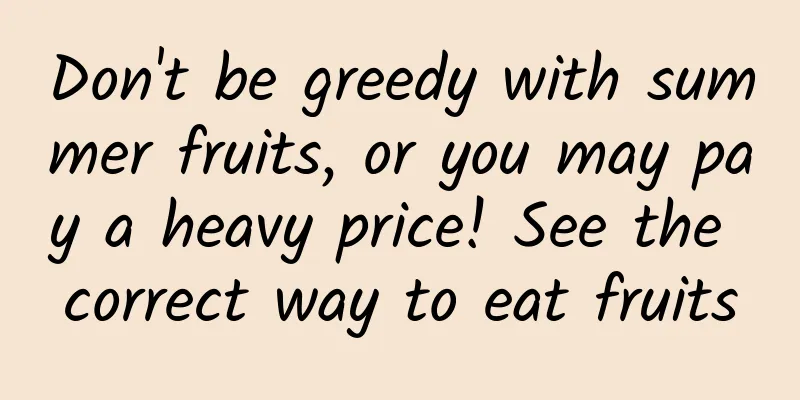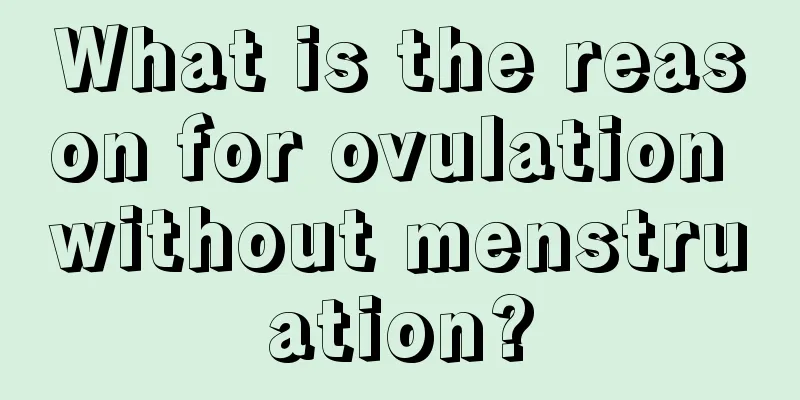Too much salt means loss! Eating salt is a simple matter that hides a lot of knowledge. Come and see if you are eating it right?

|
As the saying goes, "If people don't eat salt, they will have no strength." In the past, people engaged in a lot of farming work and needed to eat salt to gain strength. In modern society, the production and lifestyle have undergone tremendous changes. We should make a low-salt diet a norm. 1. What are the health risks of a high-salt diet? 1. High blood pressure and high blood sugar 2. Heart disease and kidney damage 3. Kidney stones 4. Gastritis 5. Osteoporosis 2. How to eat salt correctly to avoid excessive salt intake Experts from Pingjiang County First People's Hospital reminded: According to the "Dietary Guidelines for Chinese Residents", the daily salt intake of adults should not exceed 5 grams. Patients with high blood pressure and high blood sugar should strictly follow this guideline. If we use a 2-gram salt-limiting spoon, the daily salt intake should be controlled within 2.5 spoons, or use a beer bottle cap (about 5 grams) to measure the salt amount. Tips for limiting salt 1. Correct the habit of adding too much salt and soy sauce, use measuring tools to control daily salt intake, and add the appropriate amount at each meal. 2. Generally, 20 ml of soy sauce contains 3 grams of salt, and 10 grams of yellow sauce contains 1.5 grams of salt. When using soy sauce and sauces, the amount of salt needs to be reduced proportionally. 3. For people who are used to eating salty food, you can add a little vinegar to the dishes to enhance the flavor and gradually adapt to a low-salt diet. 4. Sugar will mask the saltiness, so don’t judge the amount of salt by tasting alone; using a measuring tool is more accurate. 5. Reduce the intake of pickles, preserved foods and other salty foods. 3. What are the disguises of "invisible salt" Why do we still have so many chronic diseases even if we control salt intake according to this limit? The reason may be that we ignore the "invisible salt" that can be found everywhere in our lives. Let's take a look at the disguises of these "invisible salts"! 1. Condiments and sauces Many common condiments and sauces contain salt, such as soy sauce, oyster sauce, chicken essence, and steamed fish sauce. In addition, sweet noodle sauce, salad dressing, mayonnaise and other sauces that do not taste salty often contain more salt. 2. Processed Foods Many processed meat products, such as sausages, bacon, ham, bacon and other processed meats, usually add a lot of salt during the production process to enhance the flavor and extend the shelf life. Canned foods, frozen meals and instant noodles, such as dried noodles and instant ramen, also contain a lot of salt. Even seemingly healthy foods, such as low-fat yogurt or whole-wheat bread, may contain unexpected amounts of salt. 3. Restaurants and fast food When dining out, especially at fast food restaurants, a lot of seasoning is often used to enhance the taste of the food. In addition, the seasonings and sauces used in these restaurants may also contain a lot of hidden salt. 4. Sweets Some people think that if there is no saltiness, it does not contain salt, and they will not associate sweetness with salt. In fact, many snacks we eat also contain salt, such as bread, biscuits, cakes, desserts, ice cream, cheese, etc. The production process of these foods requires the addition of sodium-containing auxiliary materials, such as baking powder (sodium bicarbonate), and functional additives. Salt is added for seasoning at the same time as sugar, so the sodium content is also relatively high. 5. Snacks Foods such as potato chips, candied fruit, beef jerky, seaweed, melon seeds, and candied fruit are salty in nature, which shows that they contain a lot of salt. Secondly, the salt in dried fruits such as melon seeds, peanuts, and pistachios should not be underestimated. 6. Drinks In addition, the sports drinks, fruit and vegetable juices, coffee, mineral water, etc. that we often drink also contain a lot of salt. 4. How to guard against "invisible salt" in life 1. Read food ingredient lists Many processed and fast foods are high in salt. Always check food labels for sodium content when purchasing food. Choosing products with low sodium or no sodium added can help reduce your daily salt intake. 2. Reduce your intake of fast food and processed foods Fast food and processed foods are often high in salt, and cutting back on these foods can significantly reduce your daily sodium intake. Choosing fresh, unprocessed ingredients more often and cooking your own meals can help you better control the amount of salt you use. 3. Use less salt when cooking When cooking, try to reduce the use of salt. You can use the original flavor of the food to cook, such as steaming, stewing, boiling, etc. The original flavor can reduce salt intake. Adding a little vinegar or sugar to dishes before they are served can enhance the flavor of the dish, while sprinkling salt can satisfy the taste. You can also use natural spices, herbs and condiments to enhance the flavor of food instead of relying on salt. Common substitutes include black pepper, turmeric, rosemary and garlic. 4. Increase potassium intake appropriately Potassium helps balance sodium levels in the body, and increasing potassium intake can help mitigate the negative effects of salt on health. Foods rich in potassium include bananas, oranges, kelp, seaweed, fungus, potatoes, fish, tomatoes, spinach and sweet potatoes. Increasing potassium intake through diet can counteract the effects of sodium on blood pressure. 5. Stay hydrated Adequate water intake is essential to maintaining salt balance in the body. Drink at least 8 glasses of water a day to help eliminate excess sodium from the body. In addition, maintaining moderate exercise can also help regulate salt and water in the body. Salt is an essential part of our diet, but excessive salt intake can have serious effects on health. By scientifically managing salt intake and choosing a healthy diet and lifestyle, we can effectively reduce the risk of disease. Understanding the potential hazards of a high-salt diet and implementing a low-salt diet are key steps in protecting our health. Hunan Medical Chat Special Author: Chen Dan, Pingjiang County First People's Hospital Follow @湖南医聊 to get more health science information! (Edited by ZS) |
<<: Liu Qian revealed that he had lung adenocarcinoma, but he was lucky
Recommend
How to treat yellow and smelly leucorrhea
Leucorrhea is a kind of secretion in every female...
Very good Chinese medicine for treating mold
Fungus is often active in women and is prone to r...
What to do with local adhesions in the uterine cavity and what is the best treatment
When local adhesions occur in the uterine cavity,...
Anal pain after medical abortion
After medical abortion, there may be a pushing se...
How many days of bleeding is normal after medication?
Medical abortion is a common method of artificial...
How to make bangs grow faster
Some people's hair grows very slowly, or they...
What are the advantages and disadvantages of cesarean section
The moment of childbirth is the moment of the bir...
What does calcification of breast hyperplasia mean?
The breast is the most important part of the fema...
Women's fitness exercises
Men and women are different in terms of exercise....
What is the meaning of ddys? What is the abbreviation of ddys?
There are often some people who use online social...
How to treat uterine calcification?
People grow up eating whole grains, and there are...
Why do I have cervical pain after sex?
Sexual intercourse is an important part of couple...
What should I do if I drink alcohol while taking birth control pills?
Modern people's consciousness is becoming mor...
What does menstrual bleeding mean?
As the saying goes, women are a kind of wonderful...
Causes of scanty menstrual flow
In fact, female friends should pay more attention...









